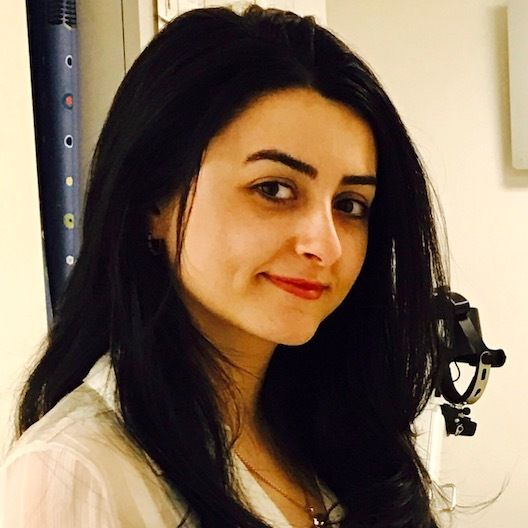Managing Glaucoma: Advice to Physicians and Patients
Noncompliance among younger patients and lack of education are issues that should continually be addressed by care teams.
Arpine Barsegian, MD

In their previous interview segment, Arpine Barsegian, MD, and Mohamed Sharaby, MD, of UCLA Health, talked generally about glaucoma, its risk factors, heritability, and new research.
In the second and final part of their interview with HCPLive®, the two ophthalmologists offered advice to patients and clinicians on what to be aware of during treatment of the disease. Of note was the issue of compliance, especially in patients of younger ages.
Barsegian and Sharaby stressed candid conversations between physicians and patient as well as the importance of early detection and screening.
They also discussed the need to cultivate trust between both parties, especially considering the chronicity of the condition and long-term nature of their relationship.
HCPLive: What advice would you give to those struggling with or suspected of having glaucoma?
Sharaby: If you do have history of glaucoma in your family, take it seriously. It's never too early to get checked out to make sure you do or don't have glaucoma.
The earlier the better. The saddest thing I've seen in practice is people who come in in their 60s or early 70s with far advanced disease. You can't really do much about those patients at this point. So you want to catch it early.
I tell patients that if we catch it early, we can put them on medications or therapy to maintain the vision that they have for the rest of their life. This way, they can enjoy the things they like to do throughout their lives.
Barsegian: I would say that if you do have glaucoma, you really require observation and treatment for the rest of your life.
Make sure that you find an ophthalmologist that you feel very comfortable with, because you're going to be with them for a long time. You have to trust them, and they have to trust you.
So, it is a life-long relationship at that point going forward.
Sharaby: I would also like to point out an issue of compliance with therapies and drops among those who are younger or in their early 50s.
Those are the people that get started, they use the drops for a few years, they keep going to the doctor, and, every time, they repeat the same testing and are told that everything is stable.
And then, all of a sudden, they fall off the wagon and stop using the drops. Then they come back 3 years later and their disease is so far advanced.
So, try not to be one of those people. That's the main message I want to tell some of these younger patients.
HCPLive: On the flip-side, what advice would you give to specialists or primary care providers dealing with these kinds of patients?
Sharaby: Yesterday in the clinic, I was talking to a patient—who's also an optometrist—about the main reason for noncompliance being that we don't spend enough time to educate the patient. This is partly due to the rush of patients that we see on a daily basis.
Of course, nobody wants to go blind. So, if you take the time to explain to them how the disease works, if you take those 5 extra minutes to get those points across, nobody's going to stop taking their drops. And they're really going to thank you for it, especially for being candid with them.
Barsegian: Primary care physicians are sometimes overworked. They have patients with other serious medical conditions: heart disease, high blood pressure, diabetes. Understandably so, they spend all their energy on that.
However, the same way that you want to treat a patient's high blood pressure—even though they don't necessarily feel it—to prevent stroke, you also want to treat their eye pressure so they don't go blind.
I think it's important to constantly remind their patients to take their eye drops and remain compliant. That would go a long way.